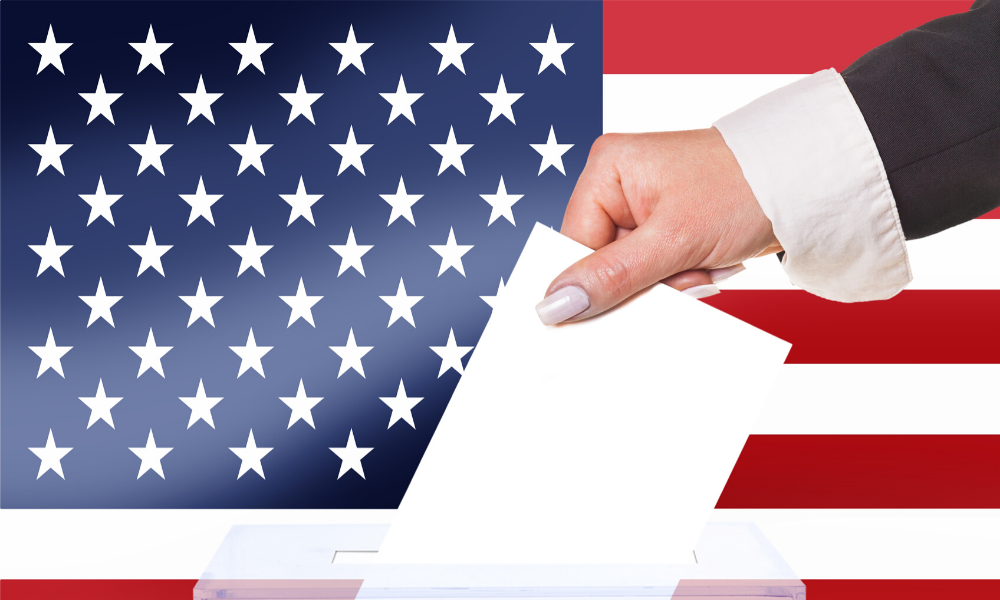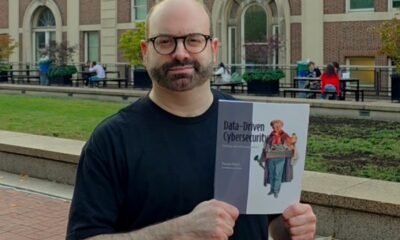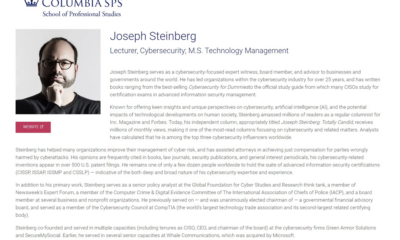We Must Develop Security Systems Now To Ensure Mail-In Elections Are Free and Fair In November
Last month, my hometown held a municipal election, which, as a precaution against the spread of COVID-19, the Governor of the State of New Jersey ordered be conducted solely by US Mail.
Over the next couple weeks it became clear that a considerable number of ballots that were ostensibly properly cast were never counted.
In the particular case of my town, the number of uncounted votes is unlikely to have impacted the results of the election, and the disenfranchisement appears to have occurred due to errors and systemic failures, not as a result of attempts at election fraud. Nearby, in the city of Paterson, however, mail-in-voting suffered from much more significant deficiencies – including, allegedly, people illegally casting votes for others, and the invalidation of as many as 20% of ballots cast – problems so widespread that many people, including community activists, elected officials, and NAACP leaders, have demanded that the election results be declared null and void, and that a new election be conducted as soon as possible.
[Update – June 25, 2020: New Jersey’s Attorney General has charged multiple people, including a Councilman and a Councilman elect, with voting fraud related to the Paterson mail-in-ballot election.]If we do not act now, the problems seen within the microcosm of New Jersey are likely to become ominous harbingers of what our nation will experience in November.
Due to the ongoing COVID-19 pandemic – and, yes, much as we would like it to be over already, it is still ongoing – it is likely that many times more people than ever before will vote by mail in the fall; some experts predict that many tens of millions of ballots will be cast via US Mail. With such a sudden and unprecedented shift in the method that so many people use to vote, there is good reason to believe that significant problems will plague the election – in a best case, causing people not to trust the results, and, in a worst case, leading to unscrupulous politicians cheating their way into elected office.
We, as a people, have a responsibility to ensure that we do not experience such problems, and that our election is unquestionably free and fair.
There is still sufficient time before November to do so. We can, and we must, design and implement proper safeguards. State governments should be bringing together groups of experts now to brainstorm and share ideas, and get to work on implementing them nationwide. Best practices already in use in one or more locations today might be able to be relatively quickly adopted as national standards. We may never be able to achieve a totally perfect election, but we certainly can do far better than we did in New Jersey in May.
Could tracking numbers similar to those used for Certified Mail be utilized nationwide when ballots are sent to voters, and pre-printed on the outer envelopes used for returning mail-in-ballots? Could implementing simplified, standard ballot formats help to reduce disqualifications? Could voters be allowed to drop off their ballots in secure, guarded mailboxes outside of closed polling stations or government offices instead of handing them over to USPS? Could voters be provided with systems to track the processing of their ballots within the government offices in which votes are tallied? Could we design a system that would preserve vote secrecy while allowing people who submit their ballots early enough to be notified if they have improperly completed their ballots (or, at least, the envelopes containing their ballots), so that we can give them the opportunity to correct the offending errors, and subsequently have their votes counted? Could we notify people via text message when their ballots are processed – and give them the opportunity to reply and raise a red flag if they did not actually cast a vote?
There is so much to consider.
Ensuring that our elections are fair and free should not be a political issue; the fact that, in recent days, both NAACP leadership and President Trump have expressed concerns about the security and integrity of elections dominated by mail-in ballots should demonstrate that the general concern is not, as some have suggested, some form of partisan ploy. While mail-in fraud may not have been a major issue in past elections in which only a relatively small percentage of votes were cast through the mail by absentees, we have seen issues develop this year in Wisconsin when unusually large numbers of people requested absentee ballots, and recent vote-by-mail-only elections in New Jersey paint a highly concerning picture about what might happen when the number of remote voters increases even more dramatically to an unprecedented level with which an election authority has no prior experience. And, with our nation already plagued with anger and unrest resulting from frustration with repeated injustices, even perceived irregularities during a high-stakes Presidential election could yield disastrous consequences.
We have only 5 months until Election Day. Let’s get to work.













 CyberSecurity for Dummies is now available at special discounted pricing on Amazon.
Give the gift of cybersecurity to a loved one.
CyberSecurity for Dummies is now available at special discounted pricing on Amazon.
Give the gift of cybersecurity to a loved one.